Oh, what to do with Don't Steal The Jacket!, Bruce Weber's truly, spectacularly, nonsensically awful kidvertainment disaster for the Italian revival puffy coat manufacturer Moncler?
Don't Steal The Jacket is every Weber cliche--dopey-beautiful young, white boymen plucked from a midwestern mall parking lot and plopped into a luxe fantasyland, where their staged, prodded mischief can be worshiped by an artfully lascivious, black & white dreamcam--plus kids, minus Labradors, plus yappy purse dogs, and plus spoken dialogue. I mean seriously, have you ever looked at a Bruce Weber photo and thought, "Wow, that is so interesting! I'd really like to talk to them! Hear what they have to say!"
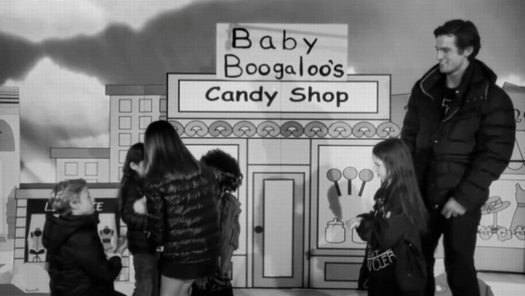
The story, such as it is, is a purposely incoherent mess, told badly and shot and performed in such a slackadaisical way, the absurdist, earnest/ironic, meta-cheesiness almost hurts. It's like you know there's a joke being played on and by someone, but you can't tell if it's on you or Moncler, or if the model fluff is in on it.
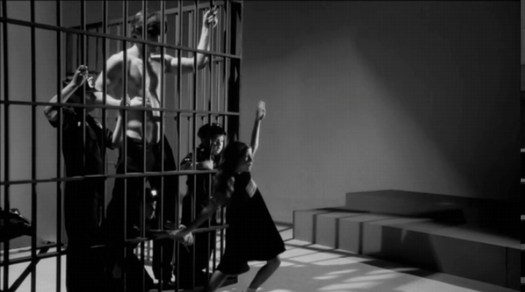
A melodramatic Douglas Sirk-style orchestra playing under the way-too-long [x7!] opening credits gives way to grungy boytoy bards narrating the 8th grade script/SAT vocabulary list in a deadpan, while children mill about a cardboard set, reading their lines off of cue cards, lounge in director's chairs, and fiddle with boom mikes. And then oh no, the girl's dog is kidnapped, and by Webisode 3, her big brother's shirtless and in fake jail, nabbed for fencing a truckload of Moncler jackets in order to raise the ransom money.
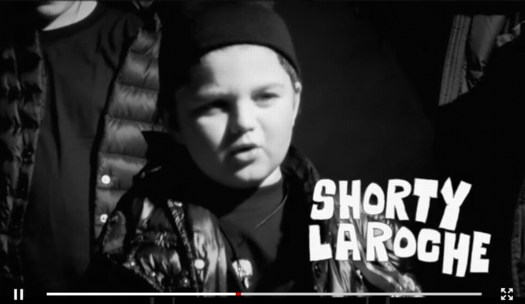
Something something, courtroom something, meta-something, [insert Artaud dream sequence reference], the black kid is a swami telling the girl how to turn her dog white again, and suddenly [sic], halfway through Webisode 7, it cuts to shots of giraffes on the savannah and Karen Carpenter is singing "Bless the beasts and the children." And kids wearing sketchily drawn "Nature is my BFF" t-shirts. Then my browser crashed, and I haven't been able to see it since, so truth be told, I don't know how it ends.
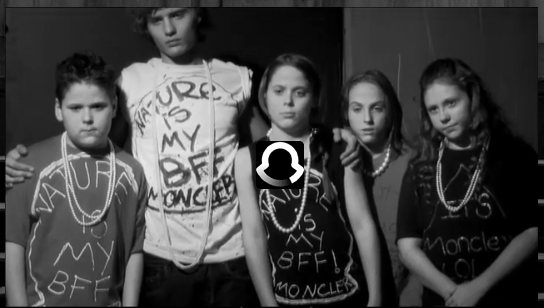
So there are many, shifting layers of media, reality, fiction, theater, documentary, artificiality and performativity; conflations of childhood dramas real and self-conciously conjured; empty nods to shoplifting and counterfeiting, luxury fashion's halo effect on an unequal culture; and Weber's typical scruff trade. But that's not important now. The content of this nonsensical film is way less entertaining than its context.
Seriously, Moncler? WTF? After garmento Remo Ruffini acquired control of the company in 2003, he has been trying to turn the zombie Moncler as an Italian playboy heritage brand, centered on EUR900 puffy coats. Ruffini signaled he had officially run out of ideas in 2009, when he brought in Thom Browne to do a skinny runway collection, and Weber to do some Abercrombie catalogues. [Though I will admit, this baby in this tiny Moncler jacket from A/W '10 is ADORABLE.]
Writing and production feel like it they were fobbed off on the intern/model/whatevers hanging around Weber's studio, while casting was basically done through an email blast for any FOAF with a 5-10yo kid. The film debuted in Milan at the end of Fashion Week, which resulted in this politely baffled post by the NYT's Eric Wilson, complete with this awesome photo of people who where there "for Bruce."
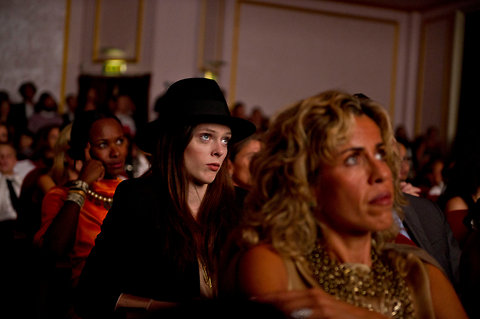
But my favorite picture is from Moncler.com's "Bonus Material." It's where, when the lights come up, Bruce momentarily realizes what he's done, just as Anna Wintour leans in to pay him the carefully non-committal compliment she's been editing in her head. [If the Times' Wilson had asked Wintour what she thought of Bruce Weber's infomercialmaking, I'm sure she could've used the quote she gave a week later about Kanye West's fashion designing: "Ask someone else."]
Don't Steal The Jacket!manages to make Moncler's Filipino inmates-in-ski-wear Grand Central Station flash mob video seem normal, and to make the RL Gang seem like a freakin' Ibsen play. And if it were enough to point that out, I'd have been done with it.
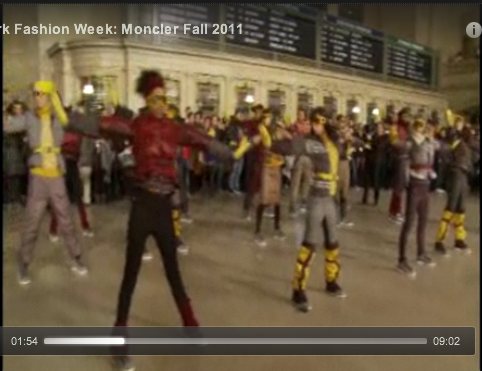
But I found I was really kind of annoyed that Weber actually did weave his superficial erotic schtick into a film populated by first graders. And when I wondered who, having grown up in the Weber Era, would be putting their kid in a Bruce Weber video in the first place, I realized he's not insidious, just incapable of doing anything else. His perennial fixation on youthful beauty is of a piece with his own uniform: the do-rag which somehow makes him not bald, and the giant shawl which makes him not fat.
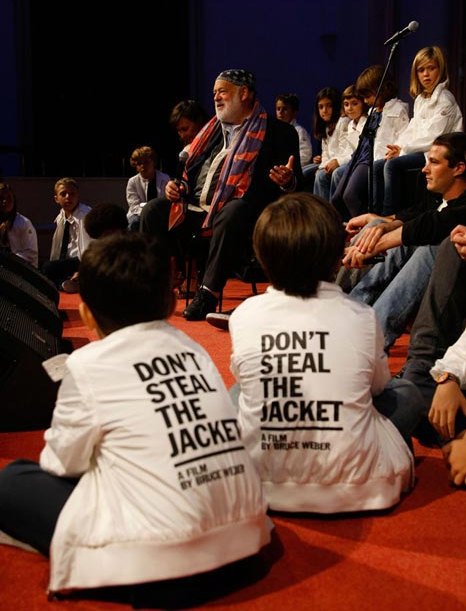
Then I found this incredible essay on J.M. Barrie and "the strangeness of Peter Pan," and the collapse of youth, childhood, and adulthood. Barrie's wacked relationship with the Llewelyn Davies family provided the inspiration and context for a truly odd book. Michael Newton's bead on Barrie hits so close to Weber, i have to quote him at length:
But what's oddest of all is that the public shared Barrie's private fantasy. In literature, success means finding a market for monomania. In order to resurrect Tinkerbell, adults as well as children applauded. They too, it seems, were attuned to Barrie's desire to remain a child. For us that desire has gone. Who now would really want to be a child and never grow up? Of course, in our wish to escape from work, responsibility, or money worries, I am sure that many on occasion would like to be a kid again. But a hankering for childhood - that now seems entirely lost.And so this is where we are right now: with Bruce Weber as our J.M. Barrie, and Don't Steal The Jacket as our Peter Pan. On the bright side, I did order a copy of Postman's 30-year-old book....
These days it seems that the twilight zone of adolescence is the preferred place to be shipwrecked. "Youth" has advanced on two fronts, seizing the ground of "childhood" while occupying the place of maturity. As on that beach in Brighton, many look to loiter for ever in a state once considered ephemeral and transitional. In The Disappearance of Childhood (1982), Neil Postman persuasively argued that with childhood's disappearance, adulthood vanishes too. All that is left is one marketed expanse, where the consumers cling to the illusion of youth, a Botoxed utopia.
Don't Steal The Jacket! [moncler.com]
Loitering in Neverland: the strangeness of Peter Pan [guardian.co.uk]

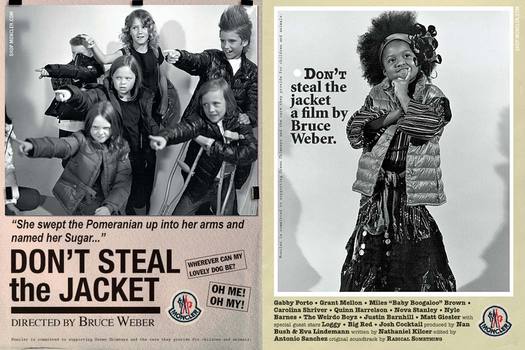
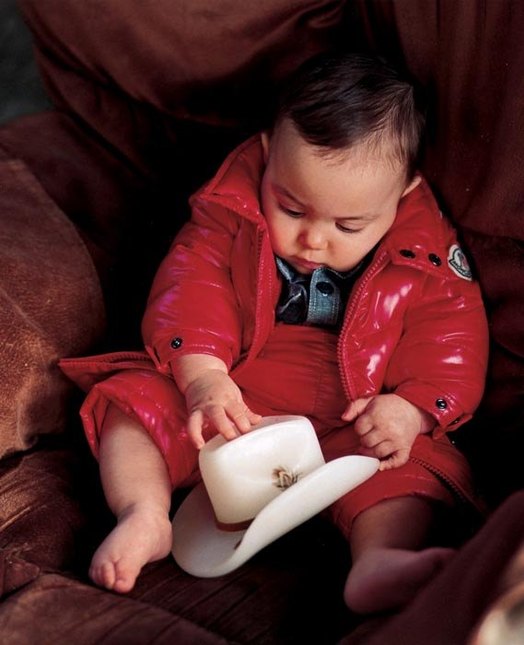
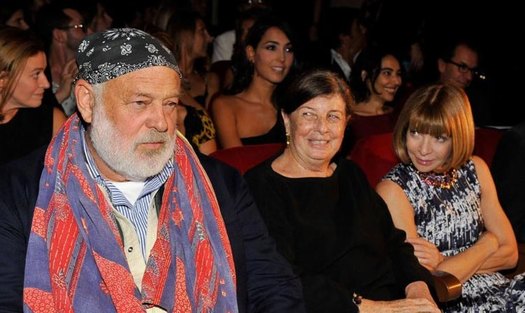

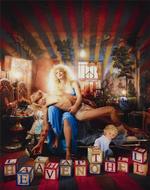
I'd just like to point out that Postman's book is only 29, and not yet 30.
...because it's important to some of us that something from '82 is not yet 30 years old. Ahem.
Adorable and about to have heatstroke.
See also: the canon of Ernie Cline.